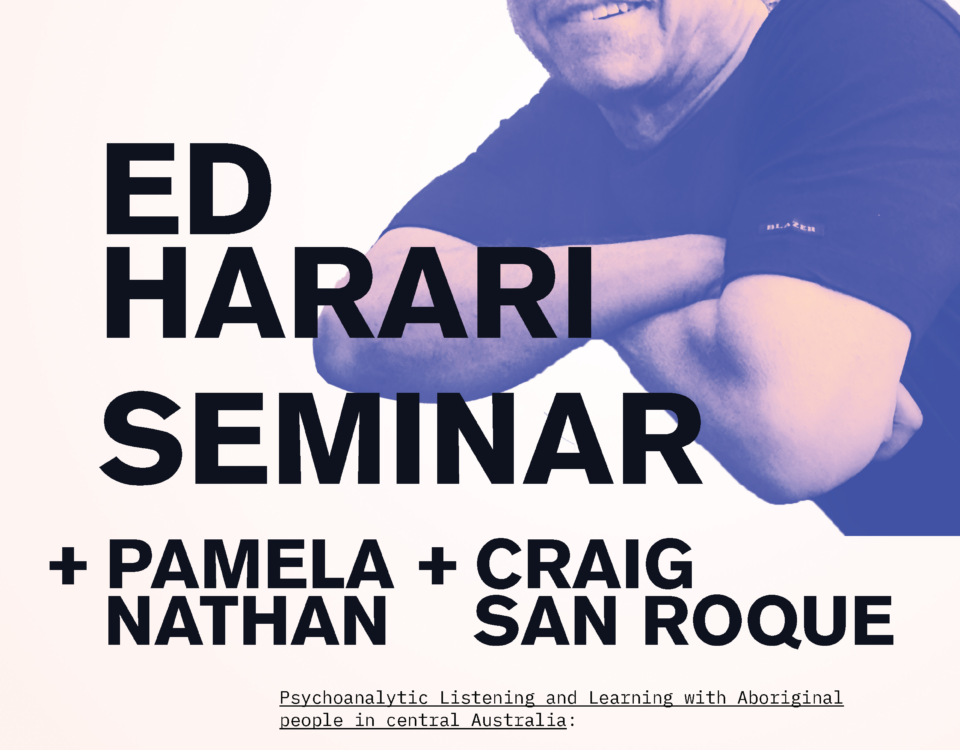Saving Lives – a condemned 11 year old Aboriginal boy
February 29, 2016
‘Changing Minds, Saving Lives’ – Psychoanalytic Insights: Suicide
March 11, 2016By Pamela Nathan
Director, CASSE Aboriginal Australian Relations Program
Too many men remain dangerously quiet in the national conversation about domestic violence.
In the Northern Territory (NT) alone, 66 percent of assault victims are Aboriginal and 82 percent of these victims are women. When it comes to family violence, Aboriginal victims are ten times more likely to die as a result of an assault. In the NT, Aboriginal and Torres Strait Islander peoples make up 86 percent of the adult prisoner population and 96.9 percent of young people in detention. Alice Springs in recent years was called the stabbing capital of the world.
It’s easy to cast judgement and disfigure perpetrators with stereotypes. We can accuse him of being mad, bad and full of grog. Such a picture is an oversimplification and distorts the truth. If we want to see real change, we need a new approach – as individuals caught in the violence, as organisations and governments responding to and dealing with the aftermath, and as clinicians involved in a therapeutic response.
We need to take a deeper look at the underlying issues.
Violence is about pain, suffering, humiliation, fear and trauma. Many perpetrators have a diagnosable but undiagnosed mental illness. Uncontrollable anger and violence can be an unconscious state of mind. Festering emotional trauma and pain can lead to irrational outbursts that are rarely planned and can result in incredible harm and even death to the spouse or loved one. In Central Australia violence can be equated with generational trauma; namely, the catastrophic interruption to and breakdown of cultural life and being.
There’s no doubt that uncovering the root causes of domestic violence is a matter of life and death.
The Aboriginal men on Arrernte country in Alice Springs, and the Pintupi and Luritja people in Ikuntji (Haasts Bluff), Watiyawanu (Mt Liebig), Walungurru (Kintore), Kiwirrkurra and Warumpi (Papunya), are taking on this issue with the help of CASSE (Creating A safe and Supportive Environment). It’s an organisation that applies a psychoanalytic approach to restoring mental health and wellbeing.
Busting systemic and cyclical violence requires recognition of the violence and the trauma experienced by both men and women.
Many violent situations are laced with doubt, despair, distrust, addiction, mental illness and negative thinking that can lead to destructive behavior, including substance abuse and suicide, and even criminal behavior such as homicide. This is a psychological crisis. This crisis is the result of a broken and crushed identity which is not recognised.
When a person (or an entire culture) is not allowed to tell their story, acknowledge their trauma, speak their language, live their cultural way, there is an oppression that leads to a psychological death.
A while back I was at a town forum in Alice Springs held by CASSE, called ‘Walk in My Shoes’. Well known Warlpiri elder Rex Granite from Yuendemu stood up during a Q&A session to comment. He said, “You don’t speak my language.”
He was saying so much more. He was pointing out that as English speaking descendants of colonists and migrants we don’t know his world, we don’t see him, we don’t recognise him. Despite belonging to the oldest continuous culture in the world, he has to speak in our language and operate in our world.
Aboriginal men need their ancient laws, language and ceremonies recognised and permission to make their traditional sacred objects like boomerangs and spears – without risking their confiscation like imprisoned inmates or naughty school children. Aboriginal men need to be allowed to self-determine, continue and transform their cultural worlds.
The cultural and emotional violence of our colonial history and pervading racism cannot be overlooked (and it too often is). We need to look at this face on. Mutual recognition of past trauma and pain is needed.
For the Pintupi and Luritja men west of Alice Springs, there is a new project that is creating the space to be heard – the Tjilirra Men’s Movement. Tjilirra is the Aboriginal Pintupi word for traditional handmade tools.
To avoid the heat of the day, the men start at dawn finding and collecting wood. There is very little conversation. By late morning conversation will enter the group, sometimes singing, as they work at the wood, some teaching, others listening and together talking about what they are doing.
They learn the old ways to craft the wood “in memory of their ancestors”. The men speak in their own language. The men “hold” the culture together.
By night – by campfire – animated stories, handling the spears and shields with song and ceremony, and serious conversation emerges. Each person is given the space to talk when they are ready. This is the consulting room in the bush, and it is where therapy (and transformations) happen. The past is continues into the present, is examined and allows a new future to emerge.
No drugs and alcohol are consumed during a day of Tjilirra making. It is a facilitating environment where individuals can find a voice, and their pain can be recognised.
Healing can happen. Violence can stop. Recognition and shedding light on the hurting heart can create a path out but first we need to listen to the Aboriginal men in Central Australia. We need to hear their language.






